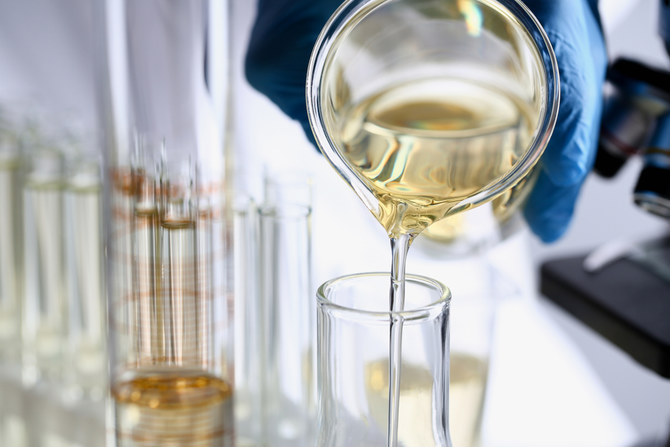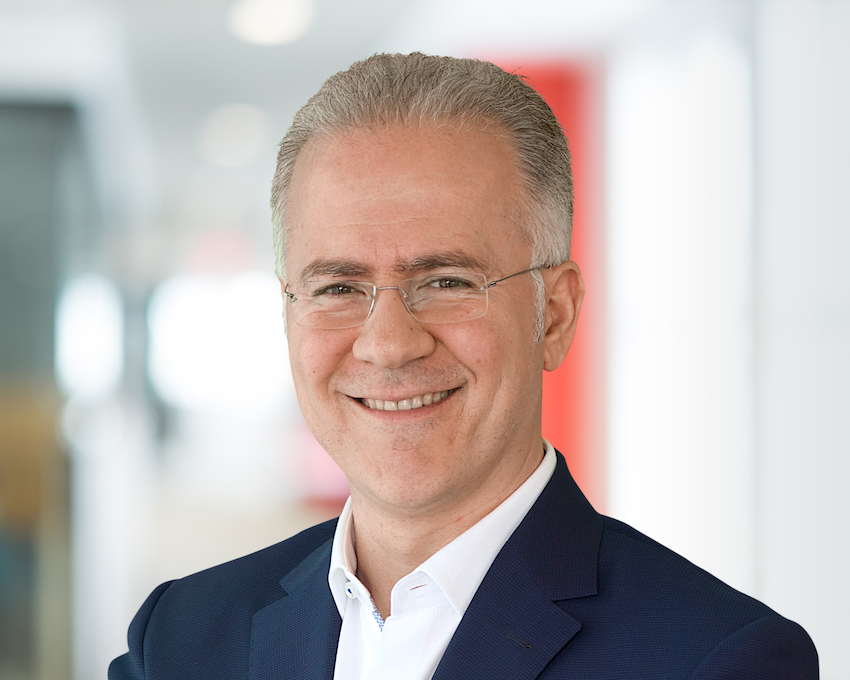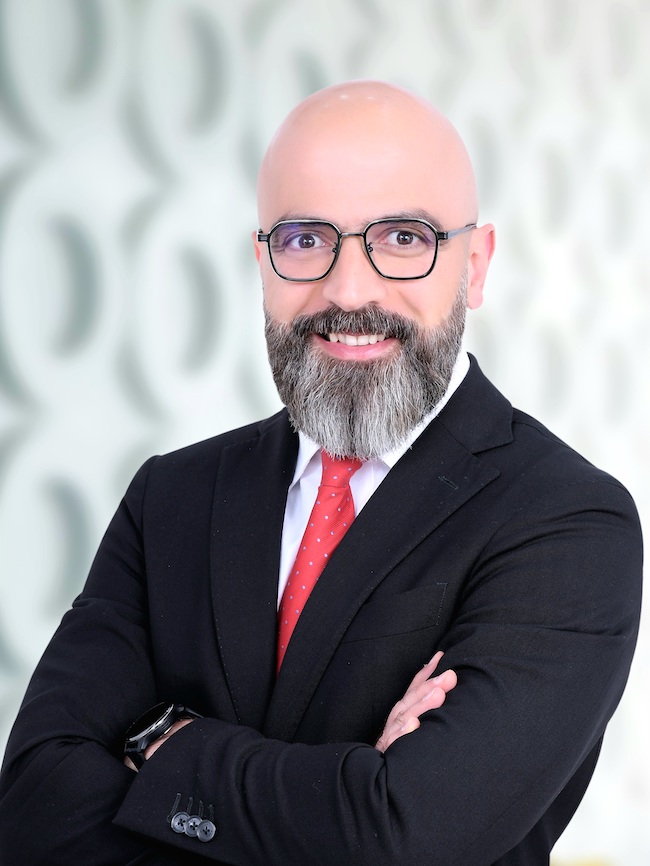RIYADH: Saudi Arabia led the Middle East in mergers and acquisitions in the chemicals sector in the first quarter of 2024, with $500 million worth of deals, according to recent data.
Figures from financial markets platform Dealogic showed that the Kingdom’s total M&A deal volume during this period reached $955 million, with the chemicals sector accounting for 52.4 percent of the total.
Saudi Arabia was the only country in the region to show activity in this sector, and a report from management consulting firm Kearney earlier this month suggested that chemical executives are expecting more M&As led by strategic investors such as national oil companies.
“Recent deals by major players like Aramco and ADNOC underscore the region’s commitment to leveraging M&A as a key growth lever, setting the stage for a dynamic and transformative period ahead,” said Jose Alberich, partner, Middle East and Africa at Kearney at the time.
The figures from Dealogic revealed that the professional services sector was the second targeted sector, with deals worth $160 million, accounting for a 16.8 percent share of the Kingdom’s total.
Technology was close behind with $138 million in deal value, capturing a 14.5 percent share.
Retail and insurance sectors represented 7 percent and 4.1 percent of the total, respectively.
Across the region
The figures revealed that during the first three months of the year, the Middle East targeted M&A volume reached $6.21 billion, with technology being the leading sector with 42 total deals worth $1.56 billion.
Finance followed with 9 deals amounting to $1.3 billion, while the oil and gas sector, which topped the list a year ago with deals valued at $3.5 billion, fell to the eighth place with just $273 million in deals.
According to Dealogic, domestic transactions were the dominant contributor, making up 55 percent of the Middle East’s M&A volume across 91 deals. In contrast, outbound transactions accounted for 45 percent with a total of 38 deals.
Kuwait emerged as the top contributor to GCC nations’ total M&A deal volume, amounting to $1.12 billion, all of which were outbound deals.
The UAE followed closely with a deal value of $988 million, of which 58 percent were domestic.
Saudi Arabia secured the third position with 18 deals valued at $955 million, of which 60 percent were outbound.
Compared to the same quarter of 2023, the Middle East’s deal volume declined by 27 percent.
Global slowdown
In its report, Dealogic explained that global M&A activity experienced a significant decline during this period, with the number of transactions falling by 31 percent to 7,162, marking one of the quietest quarters for dealmakers in nearly two decades.
The slowdown was largely attributed to high capital costs, with Switzerland being the only major economy to cut interest rates in 2024.
Additionally, geopolitical tensions, including the emergence of the Middle East as a new trouble hotspot alongside ongoing conflicts involving Russia and Ukraine, and tensions between Washington and Beijing over Taiwan, further contributed to the subdued activity in deal making.
Drivers of activity
In a paper published in September, the Boston Consulting Group said government support has been a driving force behind significant M&A activities among emerging market players in recent years, particularly in the Middle East, as firms aim at expanding their global presence.
Saudi Arabia’s SABIC acquired a 31.5 percent stake in Clariant, nearing the 33.3 percent threshold for a mandatory takeover bid under Swiss law.
The UAE’s state-owned ADNOC purchased a 24 percent interest in OMV, increasing its indirect stakes in Borealis and Borouge, and is in talks to merge them.
ADNOC also made an $11 billion offer for Covestro, which was rejected, and expressed interest in Brazil’s Braskem. These moves highlight a trend of leveraging government support to enhance regional footprints and integrate into global value chains
Additionally, Saudi Aramco acquired Valvoline Inc.’s global products business for $2.7 billion in 2023. This acquisition, according to BCG, enhances Aramco’s lubricant portfolio by integrating Valvoline’s manufacturing and distribution network and its research and development capabilities.
The research highlighted three additional key reasons driving changes in macro trends in M&A, portfolio diversification, vertical integration, and technology acquisition.
Companies are increasingly expanding their portfolios through acquisitions to enter new markets and product segments, often over extended periods. Additionally, the focus has shifted from traditional feedstock-focused acquisitions to sustainable diversification of petrochemical value chains, prioritizing higher-margin and less cyclical businesses.
In essence, this means that rather than primarily acquiring companies to secure raw materials, the emphasis is now on achieving sustainable and balanced growth across the petrochemical value chain. The current priority is to invest in businesses that generate higher profits and are less affected by market fluctuations. This shift aims to create a more resilient and profitable business model in the long term.
This strategic emphasis on specialties is fostering vertical integration into downstream segments, as evidenced by significant acquisitions by industry leaders such as Saudi Aramco, SABIC, Thailand’s PTT, and Malaysia’s PETRONAS.
According to the BCG paper, gaining or retaining technology leadership is a key driver for M&A activity. Acquisitions and joint ventures are crucial for positioning companies as major suppliers in the e-mobility segment and the related electronic chemicals and battery industry.
As demand for sustainable solutions grows, companies are increasingly recognizing the potential of e-mobility. Through strategic M&A, including technology acquisitions and research and development investments, they aim to secure competitive advantages in this rapidly expanding market.
According to Dealogic, technology-focused deals accounted for 21 percent of the global M&A activity in the first three months of 2024. This was followed by healthcare at 14 percent and finance at 11 percent.
Oil and gas stood at 9 percent, with utility and energy at 7 percent, and real estate and property sectors representing 5 percent of the total M&A activity.
AI attracting funds
Dealogic’s report highlighted that the largest global technology deals were driven by artificial intelligence. The surge in AI has significantly boosted Nvidia’s market capitalization to $2.4 trillion, with the company making investments in seven AI-related firms during this period.
Saudi Arabia also plans to establish a $40 billion fund dedicated to investing in artificial intelligence, according to a report from the New York Times in March.
Set to launch in the second half of 2024 and spearheaded by Saudi Arabia’s Public Investment Fund, it aims to attract partnerships with US venture capital firm Andreessen Horowitz and other financiers, according to the report.
It will focus on supporting various AI-related ventures in Saudi Arabia, including chip makers and large-scale data centers, NYT wrote at the time.

























